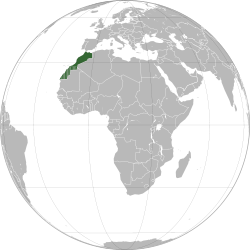Morocco: Private School Ban Raises Stir
By Magharebia
By Siham Ali
Public school instructors can no longer work extra hours in private schools. The newly announced decision has the entire academic bewildered.
The ban came into force at the beginning of this school year, on September 14th. From now on, public school instructors will need to obtain prior authorisation from the national education ministry in order to work extra hours in private schools.

The measure announced by Education Minister Mohamed El Ouafa stirred a wave of indignation, with teachers threatening a year of total disruption if the decision is not overturned.
No one in the academic field was consulted, complained Private Education League Vice-President Abdelhadi Zouiten. The decision is going to impact education especially in high school and college institutions, which both rely almost entirely on public teachers, he added.
“The ministry played with caution by not notifying us,” said Mohamed Talib, who heads the Private Education Alliance in Morocco. “They decided that each authorisation request asking for public teachers will be treated as an isolated case. Schools are asked to fill out forms and explain their situation.”
According to El Ouafa, the move was made following a survey conducted by the ministry, which showed that certain aspects of private institutions undermined Moroccan public schools. Math classes, for instance are being grouped together to give teachers more time despite complaints about class sizes in public schools.
There are over 6,672,000 public schools in Morocco as opposed to only 726,483 private institutions.
“The government makes no distinction between students from the private or the public sector”, assured Prime Minister Abdelilah Benkirane on September 13th. He vowed to “ensure that private school students get the necessary attention, support and supervision”.
“We very much expect the private sector to contribute to the training of our future teachers without this having a negative impact on public school,” he added.
Still, public teachers should contribute within the limits of the law, and with an authorisation from the supervising minister not to impinge on their commitment and their responsibilities as state officials, Benkirane added.
The decision is a cause of concern for parents who send their children to private schools.
“I’m afraid the school will resort to improvisation and hastily recruit teachers who have no experience – especially in subjects such as mathematics,” said Nouhad Chemali, whose child goes to high school. “Public teachers have experience and ensure that kids in private schools get a good education.”
Amina Batouli, a mother of two, had a different opinion. “The decision is likely to push teachers to concentrate further on their primary job in the public sector, which would boost teaching opportunities for young people in private schools”, she commented.

“There are over 6,672,000 public schools in Morocco as opposed to only 726,483 private institutions.”
Surely you mean students and not schools?